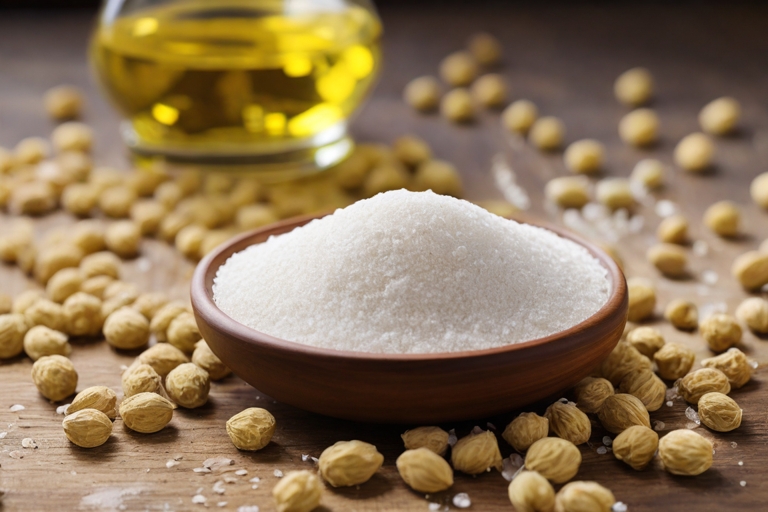Precipitated silica, as a highly efficient adsorbent, plays a crucial role in the refining process of edible oils. With its porous structure and extremely high specific surface area, it can effectively adsorb various impurities present in the oil and separate them.
Mechanism of Action of Precipitated Silica in Oil Refining
- Adsorption of Pigments: Silica adsorbs natural and artificial pigments present in the oil, making it lighter and clearer in color.
- Adsorption of Odors: This material can adsorb unpleasant odors and unwanted aromatic compounds, removing them from the oil.
- Adsorption of Waxy and Soapy Substances: Silica, as a polar adsorbent, adsorbs waxy and soapy substances present in the oil and separates them.
- Adsorption of Heavy Metals: Silica can adsorb some heavy metals such as lead and copper that may be present in the oil.
Advantages of Using Precipitated Silica in Oil Refining
- Improved Color and Clarity of Oil: Oil refined with silica has a lighter color and higher clarity.
- Removal of Unpleasant Odors: Oil refined with silica has a more pleasant odor.
- Increased Shelf Life of Oil: By removing impurities, the oil becomes more stable and its shelf life is increased.
- Improved Taste of Oil: Oil refined with silica has a purer and better taste.
- Removal of Substances Harmful to Health: By removing heavy metals and other impurities, the oil becomes safer for consumption.
Factors Affecting the Performance of Precipitated Silica
- Particle Size: The particle size of silica affects its specific surface area and adsorption capacity. Smaller particles have a higher specific surface area and consequently have a higher adsorption capacity.
- Specific Surface Area: A high specific surface area increases the contact surface of silica with the oil, resulting in increased adsorption capacity.
- Surface Structure: The surface structure of silica also affects its adsorption capacity. A surface with more hydroxyl groups has better adsorption for polar substances.
Applications of Precipitated Silica in Oil Refining
- Refining of Vegetable Oils: For refining vegetable oils such as olive oil, soybean oil, and sunflower oil.
- Refining of Animal Oils: For refining animal oils such as tallow.
- Refining of Industrial Oils: For refining industrial oils such as lubricating oils.
Conclusion
Precipitated silica, as a highly effective adsorbent, plays a significant role in the refining of edible oils. By using precipitated silica, it is possible to produce oils with high quality, lighter color, better taste, and longer shelf life.
